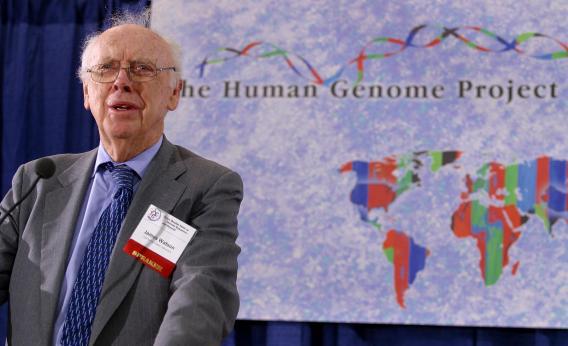This question originally appeared on Quora.
Answer by Jae Won Joh, M.D.:
Genome sequencing will help us create narrower subcategories of disease.
Please note that I do not use the word “individualized” to describe this process, as I think its use essentially creates a misconception. I’ll explain by taking you through a simplified look at the progression of medicine through the lens of cancer.
Many years ago: We first encounter cancer; we have no idea what on earth it is. We may see growths or maybe even cut into a few, but it is an astonishingly foreign disease entity because we don’t understand the science behind it—all we know is that this “tumor” is often incompatible with life, and therefore needs to be treated somehow.
With advances in microscopic technology and cell biology, we eventually arrive at the notion of classifying tumors as malignant vs. benign. Boom. First data point. Patients are now sorted into one of these two categories, allowing treatment to be focused onto the malignant lesions.
We then analyze retrospective data and pathologists come up with tumor grading and tumor staging to help calculate the risk index of future patients’ tumors. Boom. Second and third data points help us significantly refine, as we realize that malignant vs. benign isn’t as cut-and-dry as we’d thought. Patients are now sorted into one of over a dozen categories depending on their tumor’s grade and stage, allowing the aggressiveness of treatment to be scaled to the severity of the lesion.
And so it has gone on. If we look at breast cancer, discovery that some tumors overexpress HER2+/neu added a data point, allowing patients to be categorized further into those who may benefit from treatment with Trastuzumab. Other cancers have their specific markers and/or drugs as well.
What we can conclude from this march of progress, then, is that sequencing a patient’s genome (if it can be made cost-effective, widespread, and easily analyzable) may allow us to further refine our subcategories of disease, helping us put people into smaller and smaller “buckets”, as it were.
However, we have already reached a point where it is simply not cost-efficient to thoroughly investigate a specialized “best” cure for every single subcategory of a given disease. This is why I eschew use of the word “individualized” when it comes to medicine–it’s simply not possible.
Sometimes, it’s a money issue, and this is where people’s emotions and/or entitlement can clash with the practical constraints of statistical/capitalistic reality. Sure, we can all agree that it’s tragic when a young child develops a subcategory of cancer that occurs in 1 in every 300,000 people, but demanding that companies divert R&D from developing drugs for subcategories that occur in 1 in 50,000 people to research the rarer form is simply not reasonable. In short, the bigger buckets capture more research funds.
Much of the time, though, it’s just not necessary to do this; who cares what specific strain of rhinovirus gave you the common cold, if generic supportive care will get you better? If one treatment will work for a large bucket, why bother drilling down?
And for new discoveries, it’s simply a time issue, and this is natural. In medicine, the ability to diagnose has usually come before the ability to treat as R&D plays catch-up to new discoveries.
So while genomic sequencing is really, really cool, and we will continue to use it in more and more ways, we have to remember that there are constraints on what this new data can practically achieve. Just because we can test for something does not automatically make the test useful or clinically worthwhile...
More questions on medicine and health care:
